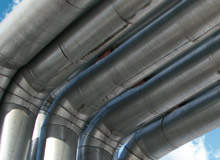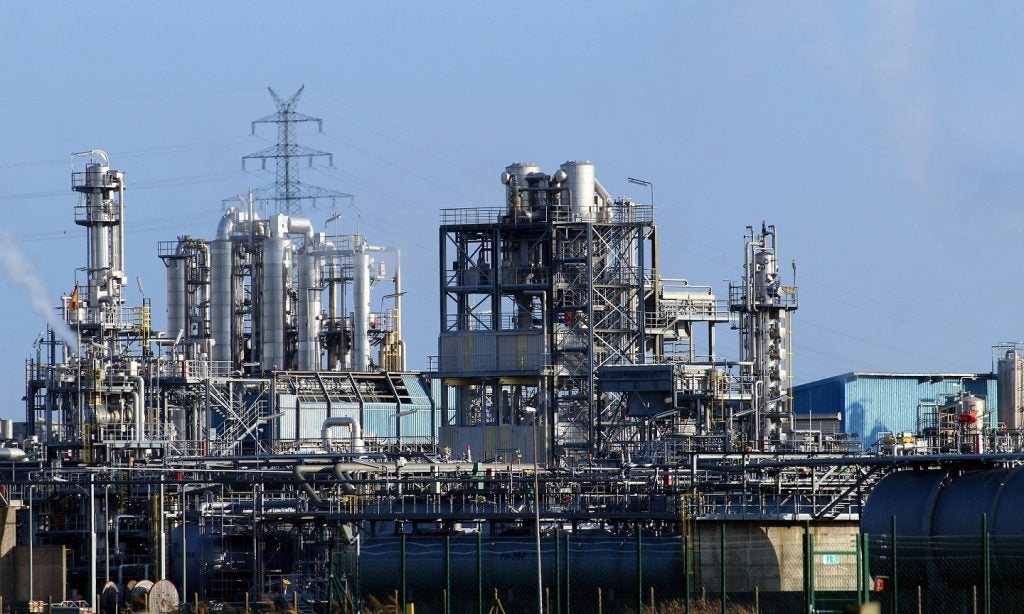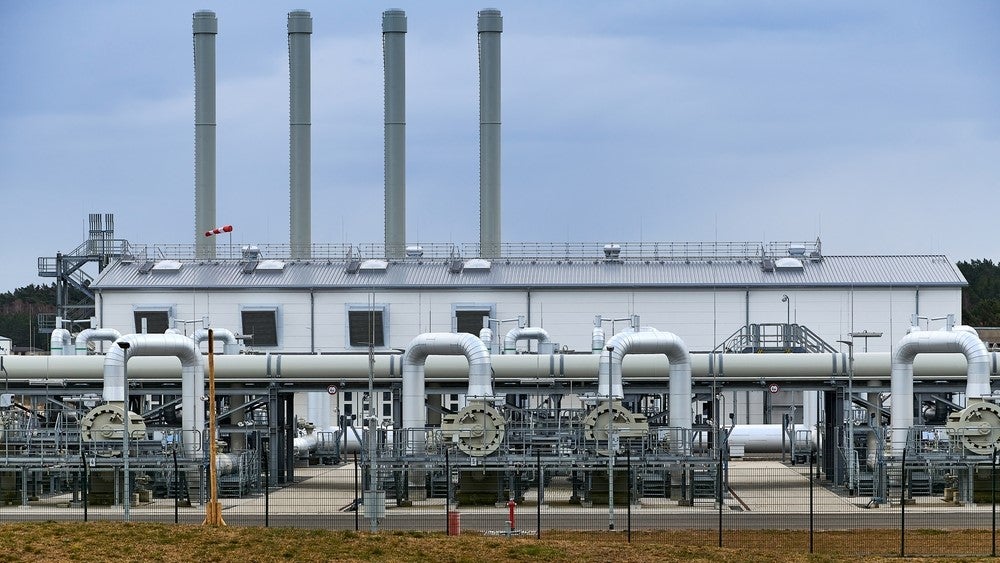
Energy – in all its forms – is the citizen of no country, but the pipelines through which it passes are vital to realising the benefits bestowed on an increasingly demanding planet from a rapidly diminishing resource. We are all facing the challenges generated by this dichotomy and the constant change that now affects and drives all industries, including energy.
Meeting these challenges will require a broad collaboration of all key participants in the energy pipeline industry. Nowhere is this truer than in the realm of research.
INDUSTRY COLLABORATION
Research is at the heart of the industry’s efforts to meet the challenges it faces, while harnessing, managing and deriving benefit from the opportunities these challenges produce.
In the realm of system integrity and reliability, the changes energy pipelines are experiencing and the drivers they create strongly suggest that it is not feasible, from a resources standpoint, for pipeline companies to confront the operating issues they face individually.
See Also:
Rather, by pooling funding and expertise and sharing a range of perspectives on needs and solutions, collaboration offers the greatest opportunity for success and the widest benefits.
How well do you really know your competitors?
Access the most comprehensive Company Profiles on the market, powered by GlobalData. Save hours of research. Gain competitive edge.

Thank you!
Your download email will arrive shortly
Not ready to buy yet? Download a free sample
We are confident about the unique quality of our Company Profiles. However, we want you to make the most beneficial decision for your business, so we offer a free sample that you can download by submitting the below form
By GlobalDataThe need and opportunity for industry collaboration is heightened by the convergence of two seemingly separate, but intimately intertwined realities. On the one hand, we continue to witness a ‘shaking out’ in the industry through mergers, acquisitions and the introduction of new, non-traditional owners and operators (for example, investment funds and insurance companies).
On the other hand, we are in a period of an enormous global build-out and expansion of pipeline systems valued in the hundreds of billions of dollars. This merger of forces is taking place in a dynamic environment.
On the business side, the pipeline asset is under constant pressure to remain the cash cow that stimulates new opportunities for energy – within the traditional roles of service and capacity provider and outside those roles in pursuit of new returns from the asset (for example, the use of rights of way for laying fibre-optic cable and more recently the transportation of alternative fuels).
On the operating side, the industry must constantly find ways to extend the life of the infrastructure and thereby sustain and enhance its value. The ability of the industry to make the case, to both public and regulator, that pipelines have a substantially unlimited life if maintained properly, will be a critical success factor for the economic viability of pipelines.
If these challenges are to translate into opportunities, success and sustaining value, the industry worldwide will need to leverage what it does and must do, through a consolidated perspective and strategy. In Pipeline Research Counsel International, Inc (PRCI), the industry has a collaborative model for identifying essential research and conducting and deploying it successfully.
To secure the future of pipeline research and its unique role in assuring system integrity and reliability, the industry will need to account for and effectively respond to several critical considerations that frame the conduct of research.
UNIVERSAL DRIVERS
First, research must address the business drivers facing the industry and, in so doing, produce value. Regardless of the motivations underlying the operation of the asset (as they may exist, for example, in developed versus developing regions), there are certain universal drivers to which research can, and should, respond. Among the more important are the following.
The growing need for system flexibility to address changing demand profiles and markets – Increasingly, pipelines are seen as transporters of the full range of energy products. The distinction between natural gas transport and oil and petroleum products is fading and new opportunities are emerging, such as the transportation of alternative fuels.
Strategic interconnects, enabling new supplies to come on line meeting growing demand and relieving and avoiding bottlenecks – This will require a near-constant installation of more finite connections, both within the existing grid and between the old grid and new supply chains.
Developing better pipeline design and construction practices, enabling greater efficiency and faster permitting of new facilities – If strategic interconnects and new construction are critical drivers of research development and deployment, then ensuring that research results are actually put in place suggests that the means to do so must continually evolve, build upon and collaborate with the technology advancing elsewhere. For example, in the fields of computing, electronics and robotics.
Building or increasing public confidence in the pipeline infrastructure – This is fundamental to the success of every pipeline endeavour and research is a unique means to help assure it. Among all aspects of the pipeline business, research is the one that is substantially free of bias, forward-focused and its application and impacts capable of assessment. These attributes are essential to the building blocks of public confidence – namely knowledge, credibility and understanding.
INTEGRITY AND RELIABILITY
As for the question of what research should be conducted, the answer involves not only the work that needs to be done, but also the context in which it takes place. Overall, the context is integrity and reliability. As used here, integrity has meaning beyond safety. In my experience, regulatory compliance is a surrogate for safety and is fairly static and too far removed from something as dynamic as risk.
On the other hand, the integrity of an operating pipeline system is the sum total of risk and the means to understand, assess and manage it. Consequently, an integrity focus is essential to successful risk management, an endeavour that requires the application of tools, which are technically justified, feasible and capable of cost-effective application on a pipeline.
The significance of integrity management, as a driver for research, may be seen in the similarity of the pipeline industry’s leading technology development organisations’ agendas, all of which are heavily weighted toward system integrity.
In addition, they all more or less utilise the same three-phase paradigm for the vast majority of the work they do – namely find the problem, assess and understand the problem and prevent or manage the problem. Under this paradigm, the following are the key areas for the near and mid-term:
Materials: focused on lighter, stronger steels with higher-design factors, yielding greater defect and damage resistance and enabling higher-pressure design and richer gas compositions; and the means to join and repair existing and new steels more cost-effectively, including while the pipe is in service.
Damage prevention: focused on predicting, preventing and limiting the damage caused by external activities around the pipe. As in the developed world, this problem will extend to pipeline-developing nations.
Corrosion prevention and control: focused on better, more damage-resistant coatings (both internal and external), improved cathodic protection design and a growing attention to internal corrosion and the means to address it.
Improved inspection techniques: focused on multiple-capability in-line inspection to locate and characterise all defects, damage and tools for above-ground detection and assessment.
Improved pipeline design: focused on validating reliability-based design methodologies, such as limit-states design, which takes advantage of new, more powerful and diverse computing capabilities.
COLLABORATIVE MODEL
The foundation of a sound and sustainable research focus for the energy pipeline industry is a research development and deployment model that is both efficient and effective. I believe strongly that the success of the collaborative model, as deployed by PRCI for 55 years, is the way to pursue essential pipeline research. I have seen first hand the benefits of collaborative research development, including how it enables optimised solutions that assure the integrity and reliability of both in-service and new pipe.
The model of collaborative research development and deployment has been a success in the US, Europe, and Australia and in each instance there are key features of the collaborative model that enable this success. These are the most important:
- Members’ voluntary contributions of resources – money, in-kind services and facilities, and expertise
- The leveraging of the available resources among all members to produce a whole that is greater than the sum of its parts
- An association of interests and a diversity of perspectives as broad as possible, while maintaining focus on and relevance to the work
- An efficient and timely return on the investment where the developed research is available to the member companies first
These features translate into substantial benefits, delivered by the PRCI programme to its 53 member companies, in North, Central and South America, Europe and Asia, including:
- Generation of positive benefit-to-cost ratios from PRCI membership in the range of 4:1 to 7:1
- Setting the technology agenda and the blueprint for its achievement
- Providing the technical foundation for voluntary industry standards and supporting the growing reliance on integrity management as an operating focus and regulatory mandate
- Focusing and leveraging available resources on the most pressing integrity and reliability needs, while minimising the potential for duplication and overlaps
- Gaining first access to the technologies developed by the collaboration
- Increasing the knowledge base of the industry, companies and individuals
- Providing the expertise, a forum and resource base for attacking fast-emerging problems
- Providing a credible basis for improving the industry’s image by demonstrating pro-activity
RESEARCH AND RESOURCES
Finally, research, like all other aspects of pipeline operations, comes down to resources. The question of how much to spend on research is comprised of two elements – the appropriate funding level and the sources of the funding. Organisations, like PRCI, have learned that the new generation of pipeline CEOs, with their marketing and business development backgrounds and biases, are uncomfortable with an overall funding target as a research driver.
However, even a cursory examination of past funding and the essential work it produced, coupled with the increasing demands to assure improved performance, suggest that an annual funding level in the range of $20m to $30m, in North America alone, will be necessary.
For the foreseeable future, the funding focus will be on: improving the outstanding integrity and reliability record of the industry, on the pipe in the ground and on improving the means and techniques for laying the new pipe (this will be necessary to optimise the value of emerging supplies and new markets). However, that resource need will be dwarfed by the extensive build out of the pipeline infrastructure in rapidly-developing regions such as Asia and China, where the focus is on new
design and construction, particularly in harsh environments.
Increasingly, because research is seen as a cost rather than an investment, it must compete with all other cost elements on the balance sheet.
While this has led, in the near term, to uncertainty in the levels of funding, rationalising and optimising research costs is not inherently a bad thing as it assures that research, like all other expenditures, must respond to the relevant business drivers facing a company and the industry.
However, when examining opportunity, need and cost, it is apparent that individual companies are reluctant to make the requisite commitment to research due to the impact of their business drivers. Consequently, only through a leveraging mechanism will the essential research developments be achieved and their benefits and solutions realised.
Certainly, it would benefit the industry and public interest if the industry had incentives to aggressively pursue an essential and expansive research agenda. These could take the form of a rate of return, acknowledging cost-effective pipeline operations or less prescriptive operating oversight. Both of these would emanate in government policy and regulation and as such are enmeshed in the broader political agenda of a nation.
FORUM FOR SOLUTIONS
In summary, a strong and sustainable research capability for the energy pipeline industry is essential to the performance and productivity of an infrastructure, which is the most efficient and safest means of energy transportation. However, because research is like every other expense on the corporate balance sheet, it must produce value for those funding the work.
It is this reality that forms the foundation of PRCI and the value proposition we offer our members, and to the energy pipeline industry at large: “Using the leverage generated by our members’ resource contributions, we create a research forum of ideas and results, producing solutions that assure the safe, reliable, environmentally-sound and cost-effective pipeline transportation of energy to consumers worldwide.”





